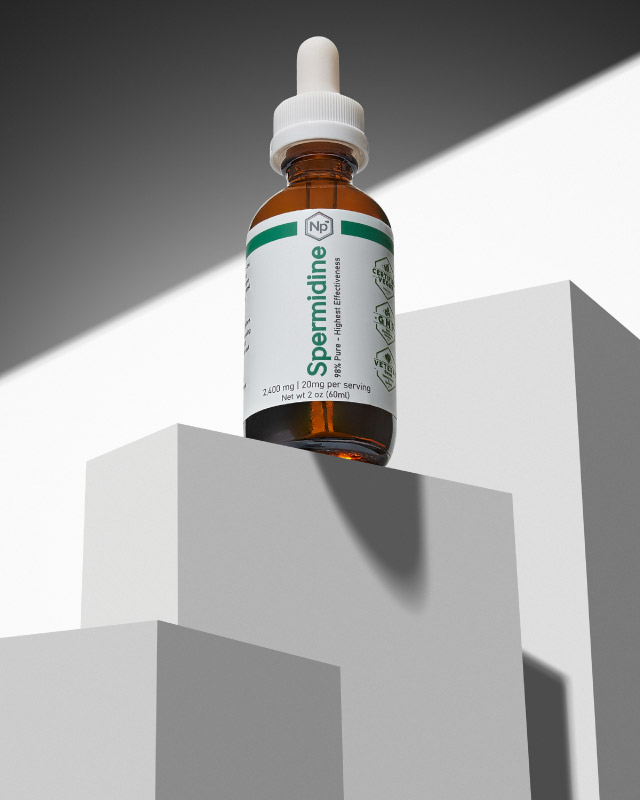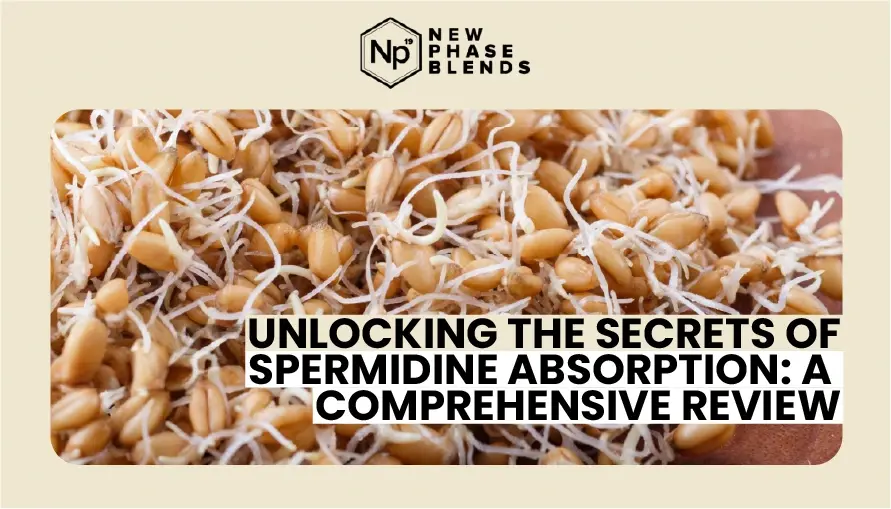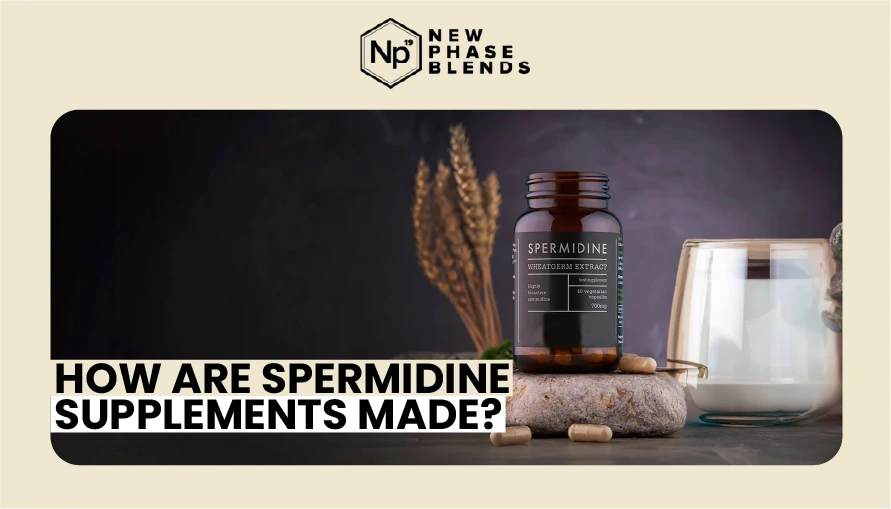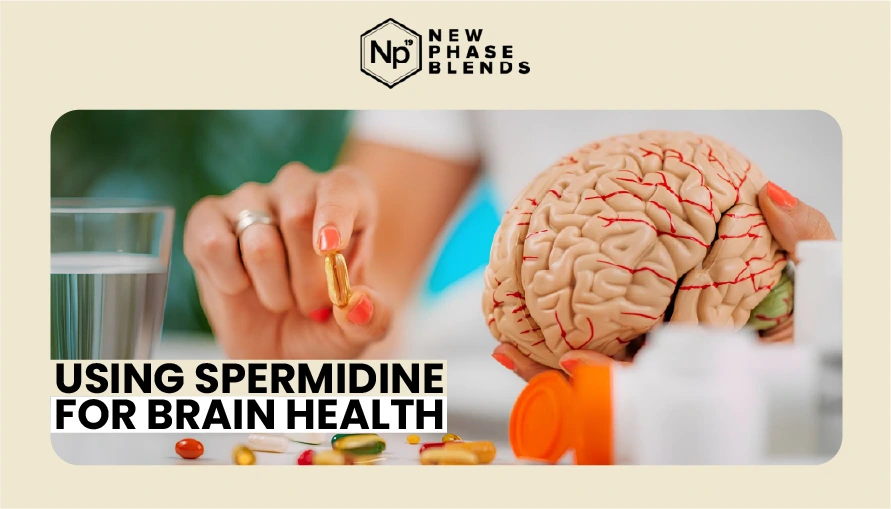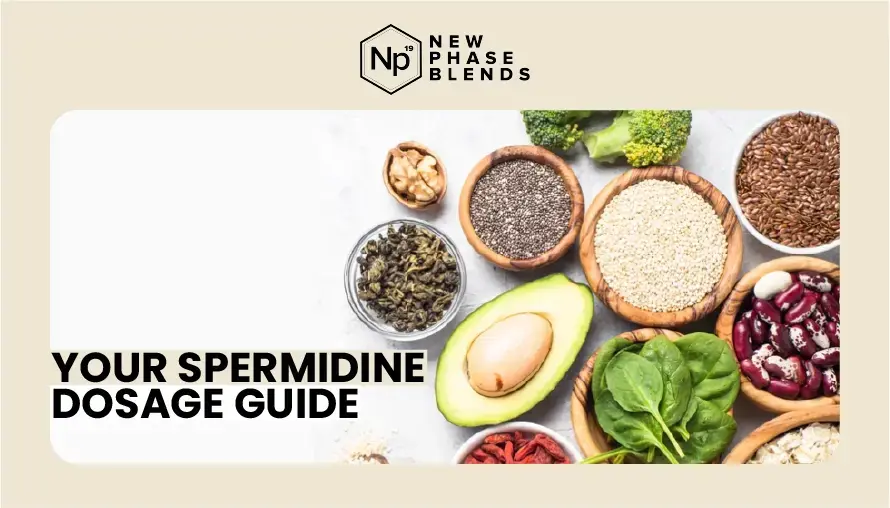Is your family struggling on your journey to parenthood? If you’re exploring natural ways to enhance fertility, spermidine might have caught your attention. This naturally occurring compound has been generating interest in reproductive health circles, but does science support its use? In this comprehensive guide, we’ll explore the relationship between spermidine and fertility for both men and women, examine the evidence behind it, and provide practical advice on dosage and usage. We’ve done research into reproductive health and emerging sciences on polyamines and fertility, so we’re in a good spot to help you understand whether spermidine might be a valuable addition to your fertility journey.
What Is Spermidine and How Does It Relate to Fertility?
Despite its name suggesting a connection to male reproductive health, spermidine isn’t exclusively related to sperm. This polyamine compound was first isolated from semen (hence the name), but it’s actually found throughout the human body and in various foods.

Spermidine plays essential roles in cellular processes including autophagy—the body’s cellular cleaning and recycling mechanism—and has been studied for its potential anti-aging effects. These cellular renewal properties have sparked interest in spermidine’s potential benefits for reproductive health.
The connection to fertility stems from spermidine’s role in:
- Cellular health and renewal
- DNA stability and protection
- Reduction of oxidative stress
- Anti-inflammatory effects
Each of these mechanisms potentially contributes to reproductive function in both men and women.
Spermidine for Female Fertility: What Science Says
Women seeking to improve fertility may find spermidine particularly interesting due to its potential effects on egg quality. As women age, egg quality naturally declines, largely due to accumulated cellular damage and reduced mitochondrial function.
How Spermidine May Support Women’s Reproductive Health
Spermidine’s autophagy-inducing properties may help improve egg quality by enhancing cellular cleanup processes. Research suggests that autophagy plays a crucial role in oocyte (egg) development and quality maintenance.
A 2019 study published in the Journal of Ovarian Research found that autophagy activation helped protect ovarian follicles from damage. While this study didn’t specifically examine spermidine, it highlights the importance of the very mechanism that spermidine promotes.

Additionally, spermidine’s antioxidant properties may help reduce the oxidative stress that contributes to declining egg quality. This could be particularly beneficial for women with conditions like endometriosis or polycystic ovary syndrome (PCOS), where inflammation and oxidative stress often play a role.
Spermidine for Male Fertility: Potential Benefits
For men, the connection between spermidine and fertility appears more straightforward, given spermidine’s natural presence in seminal fluid.
Sperm Quality and Motility
Recent research has examined how polyamines like spermidine influence sperm parameters:
- Sperm motility (movement): Some studies suggest that optimal polyamine levels support better sperm movement.
- Sperm viability: Preliminary research indicates that spermidine may help protect sperm cells from oxidative damage.
- DNA integrity: Spermidine’s role in DNA stabilization may help reduce DNA fragmentation in sperm, a common factor in male infertility.
A 2022 review in the International Journal of Molecular Sciences highlighted how polyamines, including spermidine, are involved in sperm maturation and function. The researchers noted that alterations in polyamine metabolism could potentially contribute to male fertility issues.
Effective Dose of Spermidine for Fertility Benefits
One of the most common questions about spermidine supplementation concerns proper dosage for fertility benefits. It’s important to note that no standardized clinical guidelines exist specifically for fertility enhancement.
Current Research-Based Recommendations
Most studies on spermidine have not focused exclusively on fertility but rather on its general health benefits. Based on the available research:
- Most spermidine supplements contain between 1-5 mg per daily dose
- Clinical studies have typically used doses in this range
- Safety data suggests this dosage range is well-tolerated by most people
For fertility purposes specifically, consulting with a reproductive endocrinologist or fertility specialist is advised before beginning supplementation, as individual needs may vary based on specific fertility factors.
Natural Sources of Spermidine in Your Diet
Before turning to supplements, consider that many foods naturally contain spermidine. Incorporating these foods into your diet may provide fertility benefits while supporting overall health:
Spermidine-Rich Foods
Some of the highest spermidine-containing foods include:
- Wheat germ (highest natural source)
- Soybeans and soy products
- Aged cheeses
- Mushrooms
- Broccoli and cauliflower
- Legumes like chickpeas and lentils
Incorporating these foods into a balanced, fertility-supporting diet may help increase your natural spermidine intake while providing other essential nutrients for reproductive health.
Important Considerations Before Using Spermidine for Fertility
While spermidine shows promise for supporting reproductive health, several important caveats should be considered:
Research Is Still Emerging
Much of the evidence supporting spermidine for fertility remains preliminary. Large-scale human clinical trials specifically examining fertility outcomes are limited.
Individual Variation
Fertility challenges stem from numerous potential factors, and what works for one person may not work for another. Spermidine supplementation should be considered as just one potential component of a comprehensive fertility approach.
Timing Considerations
If you’re actively trying to conceive through assisted reproductive technologies like IVF, always consult your reproductive endocrinologist before starting any new supplement, including spermidine.
Combining Spermidine with Other Fertility-Supporting Practices
For the best results, consider integrating spermidine into a holistic approach to fertility:
- Maintain a balanced diet rich in antioxidants and essential nutrients
- Engage in regular, moderate exercise
- Manage stress through mind-body practices like meditation or yoga
- Ensure adequate sleep quality and quantity
- Limit alcohol and avoid tobacco and recreational drugs
Each of these practices complements the potential benefits of spermidine by supporting overall reproductive health.
The Bottom Line on Spermidine for Fertility
Spermidine represents an intriguing area of research in fertility enhancement. Its cellular-protective and renewal-promoting properties align with what we know supports reproductive health. However, it’s not a magical solution to complex fertility challenges.
If you’re considering spermidine for fertility support, take a measured approach:
- Consult with a fertility specialist or reproductive endocrinologist
- Consider dietary sources before turning to supplements
- Integrate spermidine into a comprehensive fertility plan
- Maintain realistic expectations about results
By taking this balanced approach, you can explore the potential benefits of spermidine while ensuring you’re addressing all aspects of reproductive health. Remember that the journey to parenthood often requires patience, persistence, and a multifaceted approach to fertility optimization.




